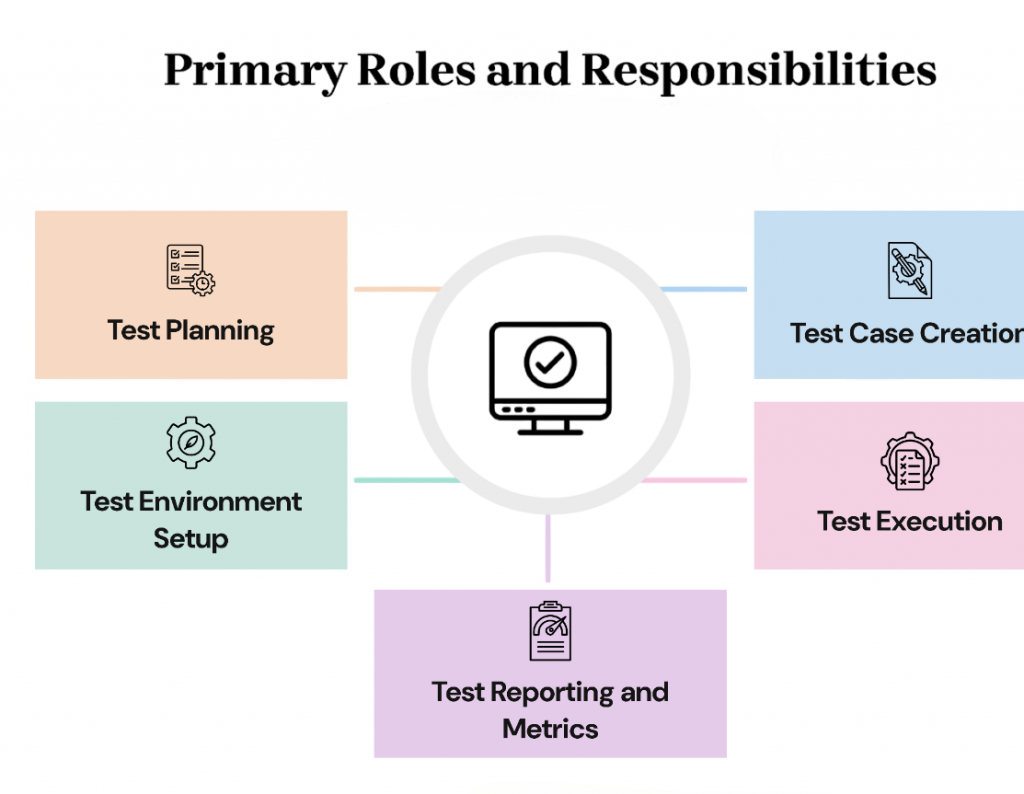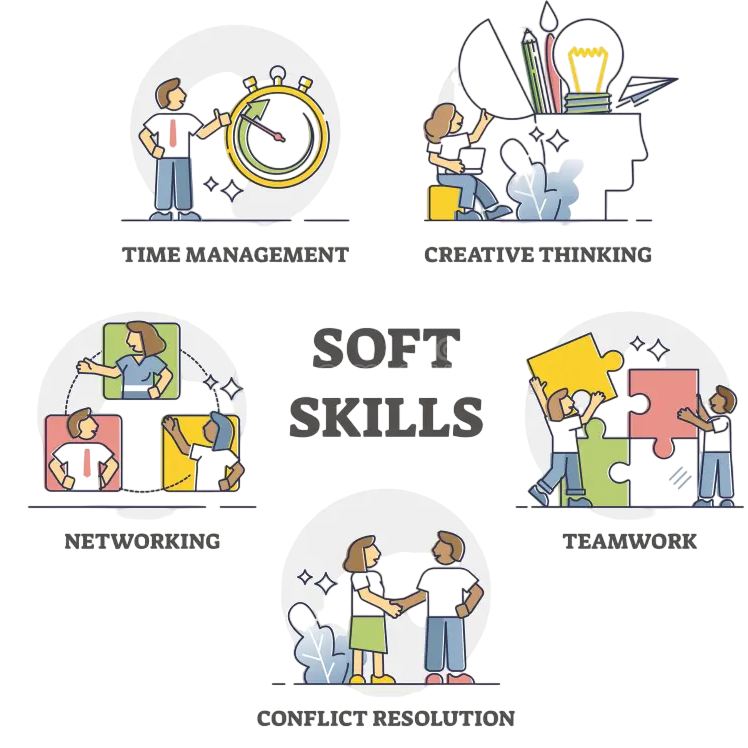
- Role Overview
- Core Responsibilities
- Required Technical Skills
- Soft Skills and Team Culture
- Tools and Technologies Commonly Used
- Daily and Weekly Workflows
- Cross-functional Collaboration
- Career Growth Paths
- Salary Outlook
- Future Trends in Engineering Roles
- Conclusion
Role Overview
Software Engineer Job Description highlights the role of professionals who design, develop, test, and maintain software applications or systems to solve real-world problems. They translate user requirements into robust, scalable, and efficient solutions by writing clean, maintainable code and collaborating with cross-functional teams. A well-defined Software Engineer Job Description also covers responsibilities beyond programming, such as participating in design discussions, conducting code reviews, debugging, and optimizing applications. To build the skills required for such roles, exploring Java Training reveals how mastering object-oriented principles, frameworks, and real-world projects prepares developers for high-impact contributions in enterprise environments. Their contribution is crucial in delivering products that align with business goals and provide excellent user experiences across industries like technology, finance, healthcare, and entertainment. Ultimately, a clear Software Engineer Job Description helps organizations attract skilled talent and enables engineers to understand expectations for building impactful software.
To Earn Your Java Training Certification, Gain Insights From Leading Web Developer Experts And Advance Your Career With ACTE’s Java Training Today!
Core Responsibilities
Software engineers undertake various responsibilities throughout the software development life cycle (SDLC). They analyze requirements, create detailed design documents, and develop software modules following coding standards.

Regularly, they write unit and integration tests to ensure quality and fix bugs or performance bottlenecks. Participation in peer code reviews and adherence to version control processes ensure collaborative and high-quality output. To streamline decision-making logic within these modules, exploring Switch Case in Java reveals how developers can replace complex if-else chains with cleaner, more readable control structures especially when handling multiple discrete conditions. Beyond coding, software engineers document their work, assist in deployment, and contribute to post-release maintenance. They also continuously research new technologies and recommend improvements to existing systems to keep products competitive and scalable.
Required Technical Skills
- Key technical skills for software engineers include proficiency in programming languages such as Java, Python, C++, JavaScript, or Ruby, depending on the project domain. A strong understanding of data structures, algorithms, and software design patterns is essential for building efficient and maintainable code. Familiarity with databases (SQL and NoSQL), web development frameworks (React, Angular, Django), and API design enhances their capabilities.
- Knowledge of Technical Skills in development tools like Git for version control, Docker for containerization, and Jenkins for continuous integration is often required. Additionally, understanding cloud platforms (AWS, Azure, GCP) and container orchestration (Kubernetes) is increasingly important in modern software environments.
- Beyond technical prowess, software engineers must possess excellent problem-solving abilities and analytical thinking to tackle complex challenges. Effective communication skills are vital for articulating ideas clearly and collaborating with teammates, product owners, and stakeholders.
- Adaptability and eagerness to learn new technologies help engineers stay current in a rapidly evolving field. Team culture often values empathy, openness to feedback, and a collaborative mindset that fosters innovation and knowledge sharing. Time management and self-motivation also contribute to meeting deadlines and balancing multiple tasks efficiently.
- Software engineers regularly collaborate with product managers, UX/UI designers, QA testers, and operations teams. Product managers define the feature roadmap and priorities, requiring engineers to align technical implementation with business goals. Designers provide wireframes and user flows to shape the user interface and experience.
- QA teams rigorously test software to catch defects, necessitating communication about bug fixes and feature clarifications. Operations and DevOps teams ensure smooth deployment and infrastructure stability, often working closely with engineers on release automation and monitoring. This cross-functional interaction ensures cohesive product development and delivery.
- Software engineering is one of the most in-demand and well-compensated professions globally. Salaries vary based on experience, location, company size, and domain expertise. Entry-level engineers typically earn competitive salaries, which increase significantly with experience and specialization.
- To sharpen coding skills and tackle common interview questions, exploring Palindrome Number Explanation and Programs reveals how checking symmetrical numeric patterns strengthens logic building an essential step in mastering algorithmic thinking and technical assessments.
- Silicon Valley, New York, and major tech hubs offer higher salaries but also have a higher cost of living. Remote work opportunities have broadened access to global salary ranges. Additionally, compensation packages often include bonuses, stock options, and benefits, reflecting the strategic importance of software engineers to organizational success.
Would You Like to Know More About Java Training? Sign Up For Our Java Training Now!
Soft Skills and Team Culture

Tools and Technologies Commonly Used
Software engineers leverage a wide array of tools throughout the development cycle. Version control systems like Git enable code collaboration and history tracking. IDEs such as Visual Studio Code, IntelliJ IDEA, or Eclipse provide efficient coding environments. For debugging and profiling, tools like Chrome DevTools, GDB, or JProfiler are common. To master these tools within a structured learning path, exploring Java Training reveals how hands-on experience with IDEs, debugging techniques, and performance profiling prepares developers for real-world software development and enterprise-grade applications. Continuous integration/continuous deployment (CI/CD) pipelines using Jenkins, Travis CI, or GitLab automate testing and deployment. Containerization tools like Docker, configuration management tools like Ansible, and cloud platforms such as AWS, Azure, or Google Cloud enhance scalability and reliability. Monitoring tools (Prometheus, Grafana) ensure applications run smoothly post-deployment.
Are You Interested in Learning More About Java Training? Sign Up For Our Java Training Today!
Daily and Weekly Workflows
A software engineer’s daily workflow typically includes coding, reviewing code submitted by peers, and attending stand-up meetings to discuss progress and blockers. They spend time debugging issues reported by QA teams or users and write automated tests to maintain code quality. Weekly workflows often involve sprint planning, where engineers estimate tasks and plan upcoming work cycles. To optimize performance during these cycles, exploring Quick Sort Algorithm reveals how this efficient, divide-and-conquer sorting technique helps streamline data organization making it a valuable tool for handling large datasets and improving application responsiveness. Retrospectives and demos provide opportunities for team reflection and stakeholder feedback. Documentation updates and continuous learning through tech talks or training sessions are also integral parts of a software engineer’s routine.
Cross-functional Collaboration
Preparing for Java Job Interviews? Have a Look at Our Blog on Java Training Interview Questions and Answers To Ace Your Interview!
Career Growth Paths
Software engineers have diverse career trajectories. Entry-level engineers typically focus on coding and learning established practices. With experience, they may advance to Senior Software Engineer roles, leading complex projects and mentoring juniors. Further progression includes Tech Lead or Architect positions, where they design system architecture and guide technical strategy. To handle string manipulation tasks often required in these roles, exploring Substring in Java reveals how developers can extract specific portions of text efficiently an essential skill for parsing inputs, formatting outputs, and managing data flow in enterprise applications. Some engineers transition into Engineering Management, overseeing teams and project delivery. Others specialize in domains like security, performance optimization, or machine learning. Continuous learning, certifications, and leadership skills influence career advancement opportunities.
Salary Outlook
Future Trends in Engineering Roles
The software engineering landscape is evolving rapidly with trends such as artificial intelligence (AI) and machine learning (ML) integration, cloud-native development, and automation of routine coding tasks through AI-powered tools like GitHub Copilot. Emphasis on security by design is increasing due to growing cyber threats. Remote and hybrid work models are reshaping collaboration and workplace culture. To support secure and efficient network design in such evolving environments, exploring Prim’s Algorithm Explanation reveals how this greedy algorithm helps construct minimum spanning trees optimizing connectivity while minimizing cost across distributed systems. Additionally, emerging fields like quantum computing, blockchain, and edge computing offer new opportunities for engineers willing to upskill. Continuous learning and adaptability will remain key to thriving in the future of software engineering.
Conclusion
The Software Engineer Job Description is now seen as one of the most popular jobs in today’s market. Companies want to attract top talent, which has resulted in high salaries for skilled professionals. A software engineer can find job opportunities in many industries, making it a flexible career choice. However, success in this field requires hard work, ongoing education, and a willingness to learn new technologies. As the tech world changes, so does the demand for skilled engineers. To stay competitive and future-ready, exploring Java Training reveals how mastering core concepts, frameworks, and real-world projects can open doors to high-growth career paths in software development. A clear Software Engineer Job Description is important for job seekers because it outlines the key skills and responsibilities needed for success.





